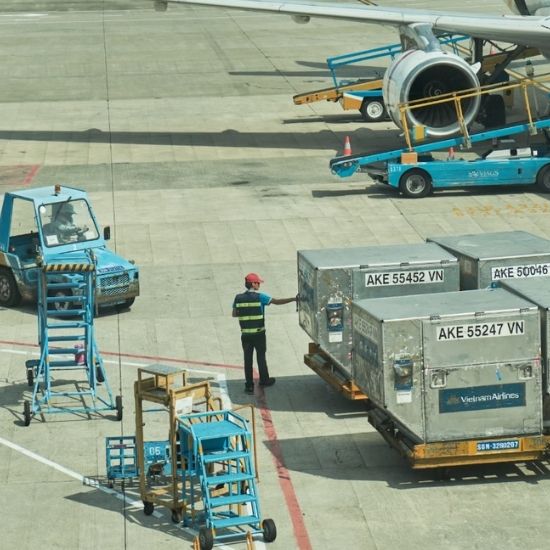Air Transportation Survey
Project Purpose
Pharma shippers indicate that most temperature deviations happen during the airside transit between the cargo warehouse and the aircraft. Airports aspiring to become a preferred pharma gateway should implement solutions in collaboration with the local partners and service providers in order to reduce the temperature risks. If the temperature control during airside transport is not managed well, it will remain a weak link in the airport’s handling and transport flow and as such will reduce the quality of the pharma services for the entire airport community.

Project Objective(s)
The project aims to identify and list down common operational processes, measures and technical solutions that reduce the transport time in uncontrolled ambient conditions and mitigate temperature excursion on airport tarmac.
Project Status And Key-takeaways
This project was finalized in January 2020. The ATS project has identified 3 main groups of common practices when it comes to minimising risks on airside transportation:
- On-tarmac time management: through Standard Operation Procedures (SOPs) to support priority management, with performance indicators to help identifying gaps and opportunities in the reduction of on-tarmac exposure time and/or through the definition of maximum tarmac transport times in Service Level Agreements (SLA’s).
- Temperature mitigating solutions: 80% of the respondents find that thermal blankets are a satisfactory solution although they do not have the capability to control temperatures, they insulate the temperature sensitive product and provide protection from brief exposure to uncontrollable ambient conditions. Another solution is the use of temperature-controlled transportation equipment designed to keep air cargo under constant predetermined temperature range to and from an aircraft.Finally, on-tarmac coolers can also be an option to protect the temperature-sensitive shipment when it is transferred between flights.
- Supply chain visibility: the capacity to monitor and share shipment conditions (location, temperature) through effective communication processes and transparency would give a competitive advantage to the concerned stakeholders.
Read more details in the White Paper.
PROJECT
SUPPORT AND
COLLABORATION.
- Project leads: Miami International Airport, Mumbai International Airport
- Project members: Brussels Airport Company, Changi Airport Group, DHL Global Forwarding, Envirotainer, Expeditors, MSD, Pfizer, Sharjah International Airport and 18 members respondents to the survey
- Project external support: Brussels Airlines, Brinks Life Sciences
- Project manager: Céline Crahay, 3CeL (external consultant)
